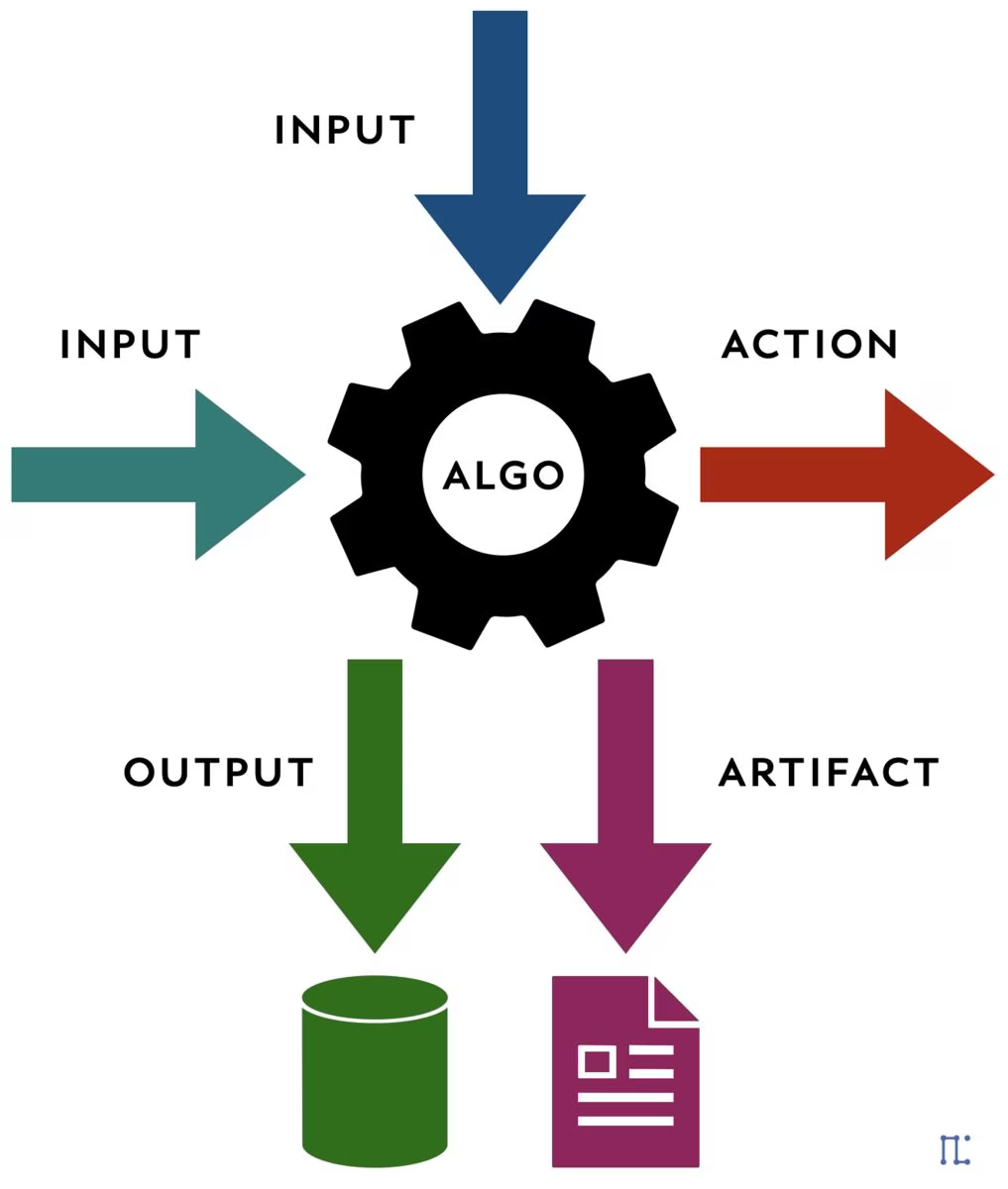Universal Business Components (UBC)

Seems like everyone, including me, is talking about how AI is going to take over everything. Cool, but what does that mean exactly? And how precisely is that supposed to happen?
The narrative people give is usually quite hand-wavy.
So the big companies will come into the business and just bring AI and BOOM! All the jobs are gone!
Scary to the uninitiated, for sure, but not super useful. This short piece lays out how I think it’s going to happen, broken into two steps.
Step 1: Decomposition of the business into Universal Business Components
Work is ultimately a set of steps, with inputs and outputs. Chris works at DocuCorp, and his job for the last 19 years of his career has been taking documents in from a place, doing something with the documents, sending out a summary of what he did, and then doing X, Y, or Z based on the time of the year, or the content of the documents, or whatever.
Chris is important. But his work can be understood in terms of components. Universal Business Components.
There are:
Inputs
An Algorithm
Outputs
Actions
Artifacts (which are also a type of output)
This is an over-simplification for sure, but it captures the vast amount of work we do in the world.
Other things we could add to break it down even further would be things like:
Planning
Making decisions
Collaborating
Etc.
But even those follow the same model. You have inputs to them, you do the thing, and then you do something with it.
The first step in AI’s imminent takeover of the business world is to realize that business can be broken down in this way, and to have businesses specialize in turning all the human-oriented messiness of a workplace into these cold, calculated diagrams of interconnecting UBCs.
Companies like Bain, KPMG, and McKinsey will thrive in this world. They’ll send armies of smiling 22-year-olds to come in and talk about "optimizing the work that humans do", and "making sure they’re working on the fulfilling part of their jobs".
But what they’ll be doing is turning every facet of what a business does into a component that can be automated. Many of those components will be automatable in a matter of months, for tens of thousands of companies. Some will take a couple of years while the tech gets better. Others will be hard to replace. But the componentization of the business is the first step.
2. Application of AI to the Universal Business Components
Now, once your company has paid the $279,500 bill to have McKinsey’s 22-year-olds turn your business into gear cogs, you’ll get introduced to Phase 2.
Cognition™️ — The business optimization platform. It’s a GPT-5 based system that takes a company’s UBCs as input, and then applies its advanced algorithms to fully optimize and automate those workflows for maximum efficiency.
As a business person you should be excited. This will in fact dramatically increase the ability for a business to get work done, and will make it far more agile in a million different ways.
But as a human? As a society? That’s another matter.
Anyway, I’m here to tell you what’s happening, and how to get ready for it. Not tell you whether I like it or not.
How to get ready
So, assuming you’re realizing how devastating this is going to be to jobs, which if you’re reading this you probably are—what can we do?
The answer is mostly nothing.
This is coming. Like, immediately. This, combined with SPQA > architectures, is going to be the most powerful tool business leaders have ever had.
Once implemented within a company, whether that’s a small team of founders in a startup, or a core set of leaders in a bigger company, the core team will be able to execute like a company 20 times its size.
Again, great for GDP, but damn. It’s going to have a bigger impact on human work than we’ve ever seen, from any technology.
AI skeptics like to say we’ve seen this before, but we haven’t. Previous technological revolutions came after tasks. They removed certain types of job from the workforce, but it wasn’t a problem because there were a million other things that humans do better than machines.
The difference this time is that we’re not talking about Task Replacement. We’re talking about Intelligence Replacement. There’s a whole lot less to pivot to when McKinsey is also looking at those jobs as well.
But speaking practically, there will still be the need for humans, and the question is what will make them resilient to this change? Hard to say for sure, but the generally accepted wisdom and my own recommendations include:
Be broadly knowledgeable and competent in many different things
Be an extraordinary communicator
Be extremely open to learning new things
Be highly competent with programming and data processing, e.g., Python, Data Engineering Basics, Using APIs, etc.
Be highly-versed in using AI tools
Neither I, nor anyone else, know how long this will keep one safe. But I do know it’s a solid path to being resilient against what’s coming.
And remember, this isn’t all doom and gloom. There is a version of this world where this becomes the impetus to move humans to a better path. One where we don’t spend 8 hours a day working some dumb job to afford a decent life. Ideally this helps us transition to something better. But the ride is about to get turbulent in the meantime.
I hope this helps you prepare.